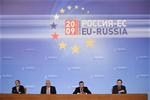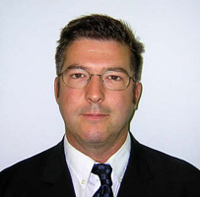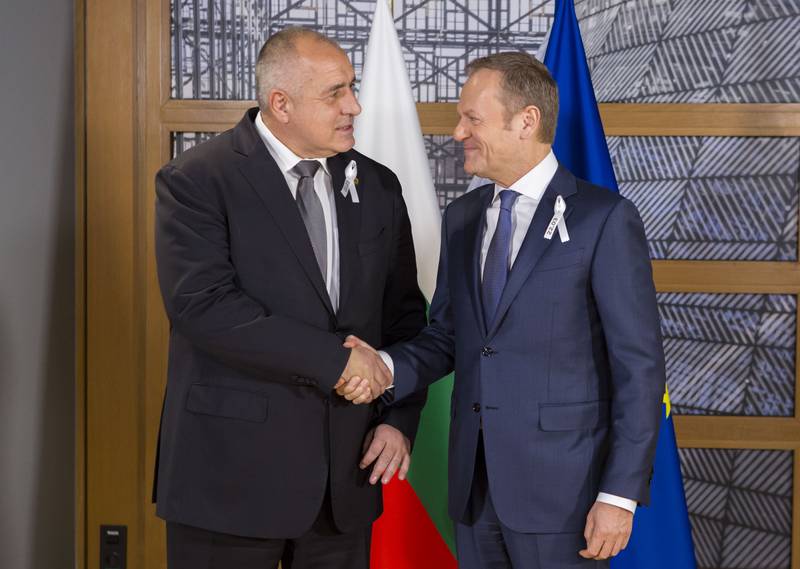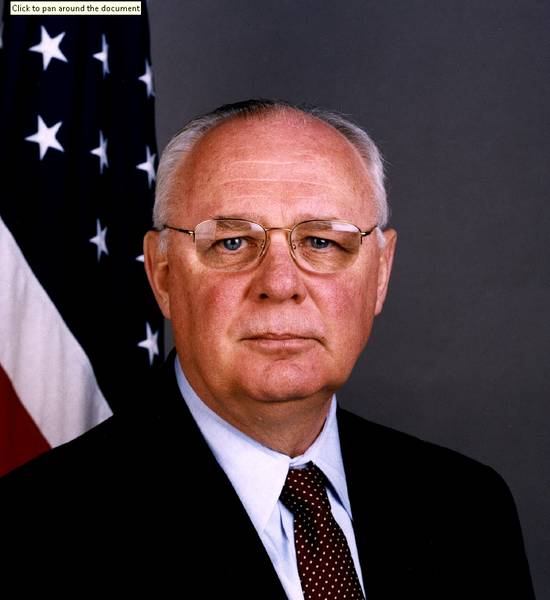Every warming of Russian-American relations might be for Eastern Europe's expense
Adelina Marini, May 23, 2009
 The EU-Russia summit in Khabarovsk has been relatively quiet in comparison to the last few summits when there were a lot of rows. This is what Andrew Wilson said in an interview for euinside. He's an expert on Eastern Europe and Russia in the European Council for Foreign Relations (ECFR). He said that in spite the attempts of European leaders to avoid confrontation with Russia, Moscow nonetheless managed to use harsh words against the EU initiative "Eastern Partnership". And that surprised many EU leaders. Asked whether the EU should have expected such a reaction, Andrew Wilson said: "Well, some countries did and that is why the communique for the Partnership has been changed almost in the very last minute to define the countries in it as neighbours and not European partners. The language with regards to the visas has also been changed in the last moment. Having done this, the initiative was taken by countries like Germany and Italy, hoping there will not be any rows with Russia but this didn't happen. Russia seems quite intolerant to everything that is going on in her backyard" or as Russia puts it - its sphere of influence.
The EU-Russia summit in Khabarovsk has been relatively quiet in comparison to the last few summits when there were a lot of rows. This is what Andrew Wilson said in an interview for euinside. He's an expert on Eastern Europe and Russia in the European Council for Foreign Relations (ECFR). He said that in spite the attempts of European leaders to avoid confrontation with Russia, Moscow nonetheless managed to use harsh words against the EU initiative "Eastern Partnership". And that surprised many EU leaders. Asked whether the EU should have expected such a reaction, Andrew Wilson said: "Well, some countries did and that is why the communique for the Partnership has been changed almost in the very last minute to define the countries in it as neighbours and not European partners. The language with regards to the visas has also been changed in the last moment. Having done this, the initiative was taken by countries like Germany and Italy, hoping there will not be any rows with Russia but this didn't happen. Russia seems quite intolerant to everything that is going on in her backyard" or as Russia puts it - its sphere of influence.
 According to Andrew Wilson many leaders would probably act quite counterproductive when going home and saying that after all they've tried to avoid confrontation with Russia and that was the reason not to raise key issues like human rights, the war in Georgia and other topics.
According to Andrew Wilson many leaders would probably act quite counterproductive when going home and saying that after all they've tried to avoid confrontation with Russia and that was the reason not to raise key issues like human rights, the war in Georgia and other topics.
But there's also another aspect of the question why the summit was so quiet. euinside asked Andrew Wilson if it was possible, because of the attempts of Russia and the US to warm up their  relations, the EU to be neglected somehow. He said that this was a possibility: "One of the qualifications is that Obama administration is not yet fully staffed with regard to foreign policy and therefore there's a tendency to focus on big poltics - US-Russa politics, for example. In other words, there are still not people who could work for example with Ukraine and Georgia. So American politics might change with time. But there are two fears: one is that big Russian-American deal will lead to neglecting other voices, other global players and, second, there are some expectations in the US that the EU should do more in its own backyard. Maybe, to some extent the US is withdrawing from Ukraine and the region, expecting that the EU will do more. But, of course, if the EU fails to do that, then we will have to see where we're going. Probably Russia will want to increase its influence to guarantee its security there. But, yes, there are serious fears in Eastern Europe that any warming of American-Russian relations might be for their expense.
relations, the EU to be neglected somehow. He said that this was a possibility: "One of the qualifications is that Obama administration is not yet fully staffed with regard to foreign policy and therefore there's a tendency to focus on big poltics - US-Russa politics, for example. In other words, there are still not people who could work for example with Ukraine and Georgia. So American politics might change with time. But there are two fears: one is that big Russian-American deal will lead to neglecting other voices, other global players and, second, there are some expectations in the US that the EU should do more in its own backyard. Maybe, to some extent the US is withdrawing from Ukraine and the region, expecting that the EU will do more. But, of course, if the EU fails to do that, then we will have to see where we're going. Probably Russia will want to increase its influence to guarantee its security there. But, yes, there are serious fears in Eastern Europe that any warming of American-Russian relations might be for their expense.
For Andrew Wilson the only way the European energy security to be guaranteed is by ignoring Russia. He said this laughing though. Instead the EU should try and improve and perfect the internal energy market. It shouldn't concentrate too much on Russian gas deliveries but on alternatives, reserves and interconnectivity. But euinside asked how could this happen since it's not quite evident that there is political will to do that. Andrew Wilson agreed to some extent but reminded how expensive it would be to build and perfect the internal energy market. And some countries will have to pay more and that is why the EU should try and help them. The March agrement with Ukraine for modernising its pipeline system proves that the EU has come to realise that energy security actually lies not only within EU-Russia relations.
And with regard to the Energy Charter which Russia proposes, Andrew Wilson is afraid that it might appear empty. In fact, the proposal which Medvedev for the first time presented in Helsinki, looked much more like sketched ideas than like a serious and detailed proposal.
 Boyko Borissov, Donald Tusk | © Council of the EU
Boyko Borissov, Donald Tusk | © Council of the EU Boris Johnson | © Council of the EU
Boris Johnson | © Council of the EU James W. Pardew | ©
James W. Pardew | ©